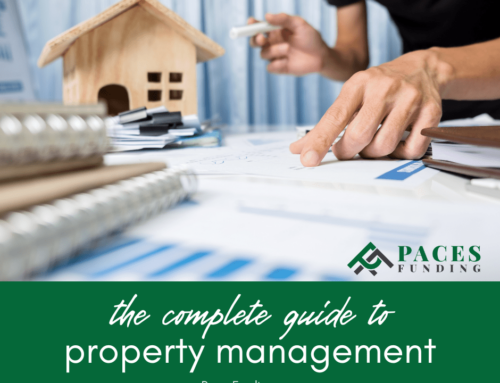
Is Hard Money Your Best Option for Investing?
Hard money loans offer a flexible and efficient solution for real estate investors. This guide explores why hard money is often the best option for investing, highlighting its advantages and how it can help you achieve your investment goals.
Is Hard Money Your Best Option for Investing?
Hard money loans provide numerous benefits for real estate investors, making them an attractive financing option. This guide covers the key reasons why hard money loans may be the best choice for your investment needs. This guide explains the following:
- Understanding hard money loans
- Advantages of hard money loans
- Ideal scenarios for hard money loans
- Comparing hard money loans to other financing options
- Steps to secure a hard money loan
Here’s a closer look at each.
Understanding Hard Money Loans
Hard money loans are short-term, asset-based loans provided by private lenders or investor groups. Unlike traditional loans, hard money loans are primarily based on the value of the property being used as collateral rather than the borrower’s credit history. These loans are designed for quick approval and funding, typically used for real estate investments such as fix-and-flip projects, bridge financing, and other non-traditional property transactions. The terms of hard money loans are generally more flexible, with higher interest rates and shorter repayment periods compared to conventional loans.
Related: Advice, tips and tricks on using hard money to buy an investment property
Advantages of Hard Money Loans
Hard money loans offer several key advantages for real estate investors:
- Quick Approval and Funding: Hard money loans can be approved and funded within days, allowing investors to act quickly on opportunities. This speed is crucial in competitive markets or time-sensitive deals.
- Flexibility: Hard money lenders offer flexible terms and conditions tailored to meet the specific needs of the investment project. This includes customized repayment schedules and loan structures.
- Less Emphasis on Credit: Hard money loans are based primarily on the property’s value, making them accessible to investors with lower credit scores or limited credit history.
- High Approval Rates: Hard money lenders are more likely to approve loans for properties needing significant repairs or unique situations that conventional lenders might reject.
- Short-Term Financing: These loans are ideal for short-term projects, such as fix-and-flip investments, where quick turnaround and flexible financing are essential.
Ideal Scenarios for Hard Money Loans
Hard money loans are particularly suitable for several investment scenarios:
- Fix-and-Flip Projects: Investors looking to buy, renovate, and quickly sell properties can benefit from the fast funding and flexible terms of hard money loans.
- Bridge Financing: When investors need short-term financing to bridge the gap between purchasing a new property and selling an existing one, hard money loans provide a timely solution.
- Property Auctions: Hard money loans enable investors to secure financing quickly for auction properties, which often require immediate payment.
- Distressed Properties: Conventional lenders may shy away from financing properties in poor condition, but hard money lenders focus on the property’s after-repair value (ARV), making them ideal for distressed properties.
Comparing Hard Money Loans to Other Financing Options
When comparing hard money loans to other financing options, several factors stand out:
- Speed: Hard money loans offer significantly faster approval and funding times than conventional loans, which can take weeks or months.
- Flexibility: The terms of hard money loans are more adaptable to the unique needs of real estate investors, unlike the rigid terms of traditional loans.
- Credit Requirements: Hard money loans place less emphasis on the borrower’s credit history, focusing instead on the property’s value, whereas conventional loans require strong credit scores and extensive documentation.
- Property Types: Hard money lenders are more willing to finance non-traditional properties and those needing significant repairs, providing opportunities that conventional lenders might not consider.
Steps to Secure a Hard Money Loan
Securing a hard money loan involves several straightforward steps:
- Find a Reputable Lender: Research and choose a reliable hard money lender with experience in the type of investment you are pursuing. Look for lenders with positive reviews and a track record of successful transactions.
- Prepare Your Proposal: Outline your investment plan, including details about the property, renovation plans, the estimated after-repair value (ARV), and your exit strategy. A well-prepared proposal can improve your chances of approval.
- Property Appraisal: The lender will conduct an appraisal to determine the property’s current value and potential value after renovations. This appraisal is crucial for determining the loan amount.
- Review Loan Terms: Carefully review the loan terms, including interest rates, fees, repayment schedule, and any other conditions. Ensure you understand all the terms before proceeding.
- Closing: Once approved, the loan will be funded, and you can proceed with your investment project. Ensure all documentation is in order and that you understand the repayment obligations.
FAQ About Hard Money Loans
Check out these commonly asked questions about hard money loans. If you don’t see your question here, please call our office and we’ll find you the answers you need.
What Are Hard Money Loans?
Hard money loans are short-term, asset-based loans provided by private lenders or investor groups, primarily based on the property’s value rather than the borrower’s creditworthiness.
Related: Guide to building wealth through rental properties
Why Are Hard Money Loans Ideal for Fix-and-Flip Projects?
Hard money loans offer quick approval and funding, flexible terms, and are based on the property’s value, making them perfect for investors looking to renovate and sell properties quickly.
How Do Hard Money Loans Compare to Conventional Loans?
Hard money loans provide faster approval, more flexible terms, less emphasis on credit, and a focus on property value, whereas conventional loans have longer approval times, rigid terms, and stricter credit requirements.
What Types of Properties Can Be Financed with Hard Money Loans?
Hard money loans are suitable for various properties, including distressed properties, non-traditional properties, and those needing significant repairs, which conventional lenders might reject.
Related: The future of real estate in America’s Southeast
How Can I Secure a Hard Money Loan?
To secure a hard money loan, find a reputable lender, prepare a detailed investment proposal, undergo a property appraisal, review loan terms, and complete the closing process.
By considering the advantages and ideal scenarios outlined in this guide, real estate investors can determine that hard money loans are often the best option for their financing needs. Whether for quick turnarounds, flexible terms, or financing unique properties, hard money loans provide a valuable alternative to conventional lending.
Do You Need a Hard Money Loan?
Paces Funding is the top hard money lender in Georgia, North Carolina, South Carolina and Tennessee. Apply for a hard money loan here or click through our site to find out how we can help you now!














